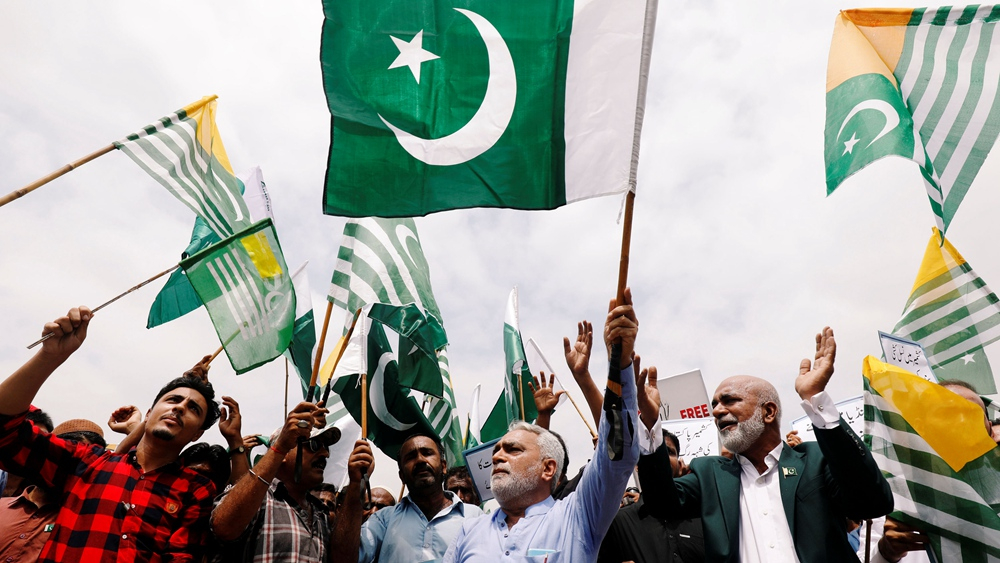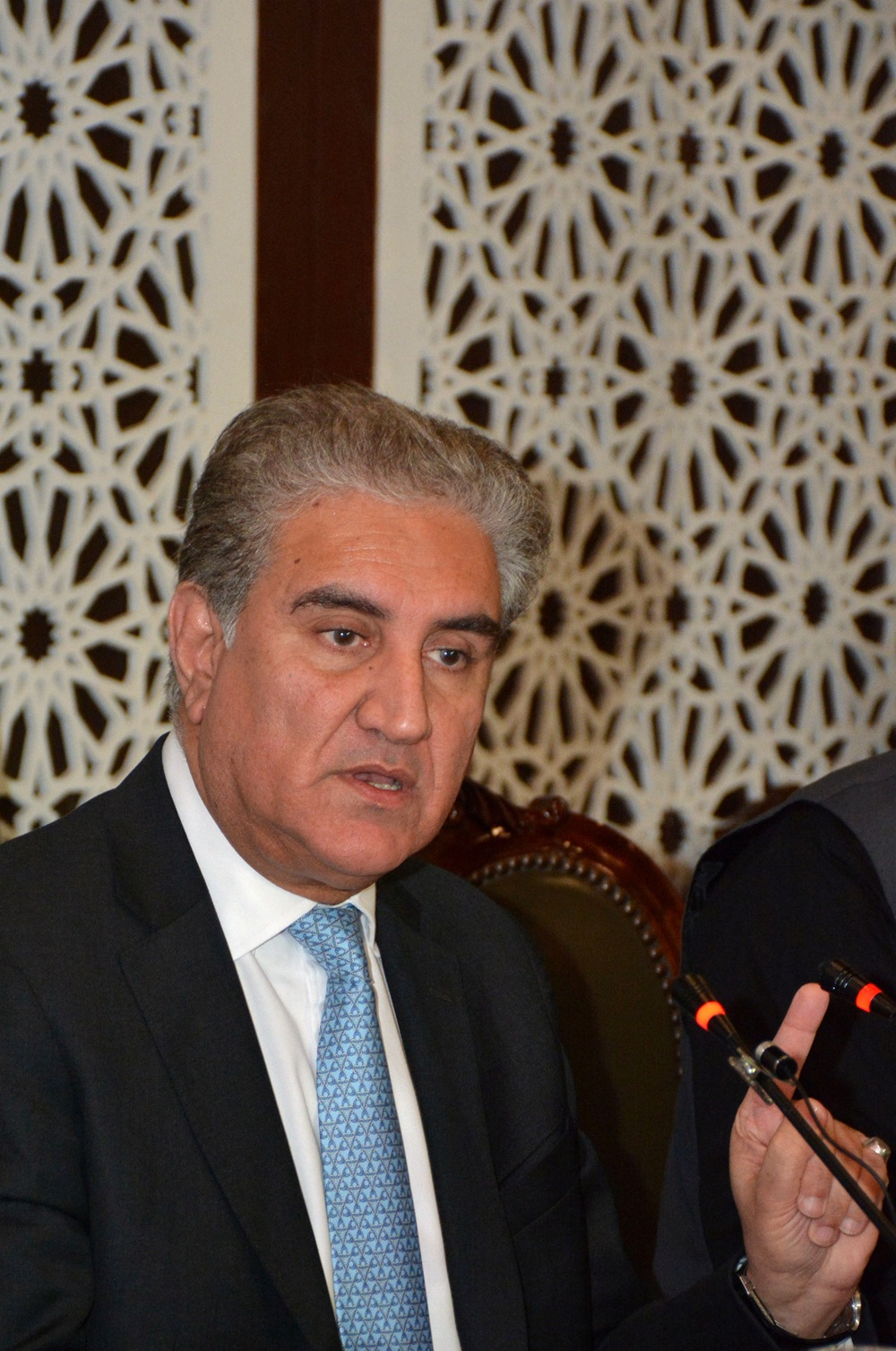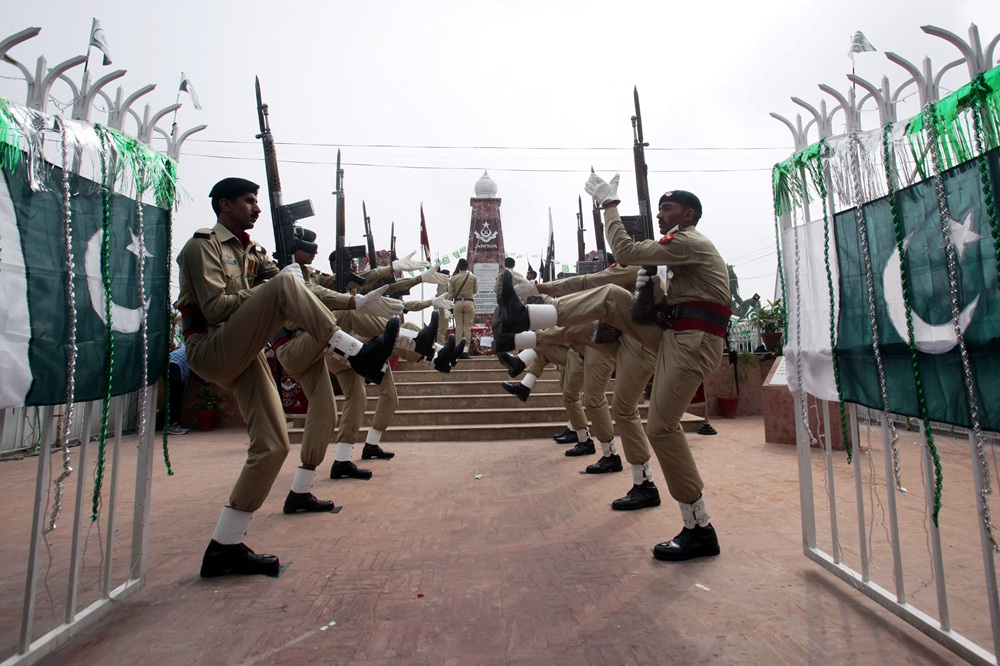

People carry Pakistan's and Azad Kashmir's flags and chant slogans during a countrywide "Kashmir Hour" to express solidarity with the people of Kashmir, in Karachi, Pakistan, August 30, 2019. /Reuters Photo
On Saturday, Pakistan said it had denied Indian President Ram Nath Kovind permission to fly through its airspace – access that is usually granted – due to New Delhi's recent "behavior."
The decision comes at a time of high tension between the two nuclear-armed South Asian neighbors over the disputed Himalayan region of Kashmir.
"The decision has been taken in view of India's behavior," Pakistani Foreign Minister Shah Mehmood Qureshi said in a statement.
"The Indian president had sought permission to use Pakistan's airspace to travel to Iceland, but we decided not to permit him," Qureshi added, without giving further details.

Pakistani Foreign Minister Shah Mehmood Qureshi speaks during a news conference in Islamabad, Pakistan, August 10, 2019. /Reuters Photo
Pakistan closed its airspace to Indian traffic in February after a suicide bomb attack killed dozens of Indian troops in Kashmir ratcheted up tensions between the two neighbors. It reopened its skies for all civilian traffic in July, ending months of restrictions that had affected major international routes.
Saturday's decision came a day after Pakistan marked its Defense Day, which commemorates a brief 1965 war with India over Kashmir.
"Pakistan firmly stands with Kashmiris for their right to self-determination," Prime Minister Imran Khan said on Friday during a visit to military posts and families of fallen soldiers in Pakistan's portion of the territory.
Kashmir, the Himalayan region divided between India and Pakistan, is claimed by both in full. Since their independence from Britain, the two countries have fought three wars, two exclusively over Kashmir.
India stripped Kashmir of its seven-decade-long semi-autonomous status through a controversial presidential decree in August. Islamabad responded by downgrading its diplomatic ties with New Delhi, expelling the Indian envoy, suspending trade and calling back its ambassador.

Army honor guards pay tribute at the war monument, during Defense Day ceremonies, or Pakistan's Memorial Day, to express solidarity with the people of Kashmir, at Wagah border, near Lahore, Pakistan, September 6, 2019. /Reuters Photo
India says 230 fighters trying to cross into Kashmir
Meanwhile, India's national security adviser said on Saturday that more than 200 suspected militants are trying to cross into Indian Kashmir from Pakistan, accusing Islamabad of trying to stoke violence in the region.
"There are about 230 people ready to infiltrate from different parts of Kashmir," Ajit Kumar Doval, national security adviser to Prime Minister Narendra Modi, told reporters.
The number is based on radio intercepts and intelligence from the ground, military officials said, adding that some militants had already been caught by Indian security forces.

Indian President Ram Nath Kovind (L3) looks on as Prime Minister Narendra Modi (R2) holds a bow and arrow at an event in New Delhi, India, October 18, 2018. /VCG Photo
"A large number of weapons are being smuggled and people in Kashmir are being told to create trouble," said Doval.
India imposed a clampdown in Indian Kashmir in early August to prevent large scale violent protests. Some curbs have been eased, but mobile phone and internet services are still curtailed because they may be used to spark unrest, Doval said.
"We would like to see all restrictions go, but it depends on how Pakistan behaves. It's a stimulant and response situation," Doval said.
(With input from agencies)

Copyright © 2018 CGTN. Beijing ICP prepared NO.16065310-3
Copyright © 2018 CGTN. Beijing ICP prepared NO.16065310-3